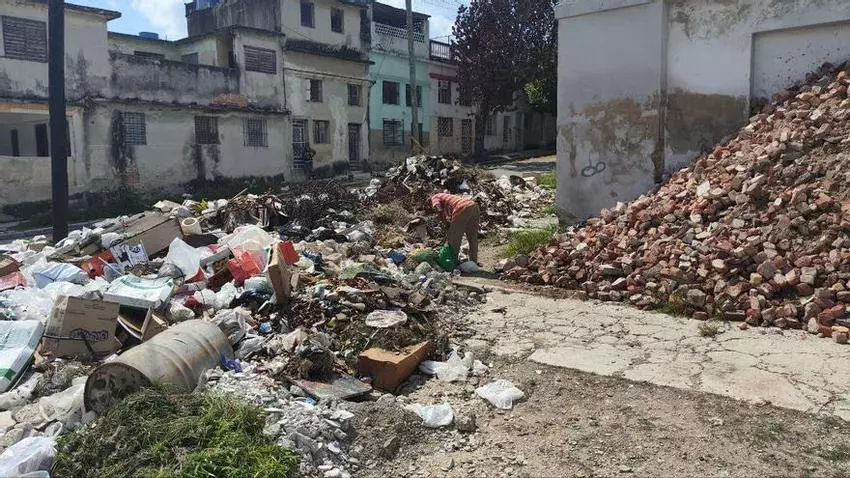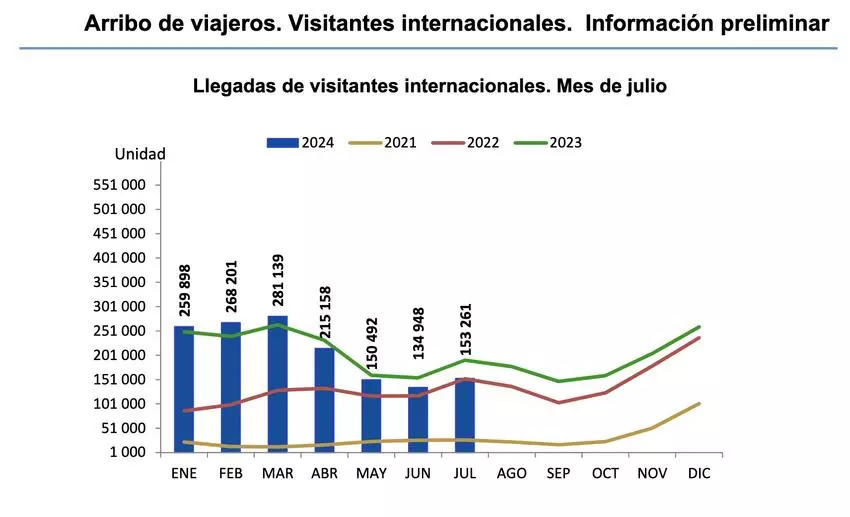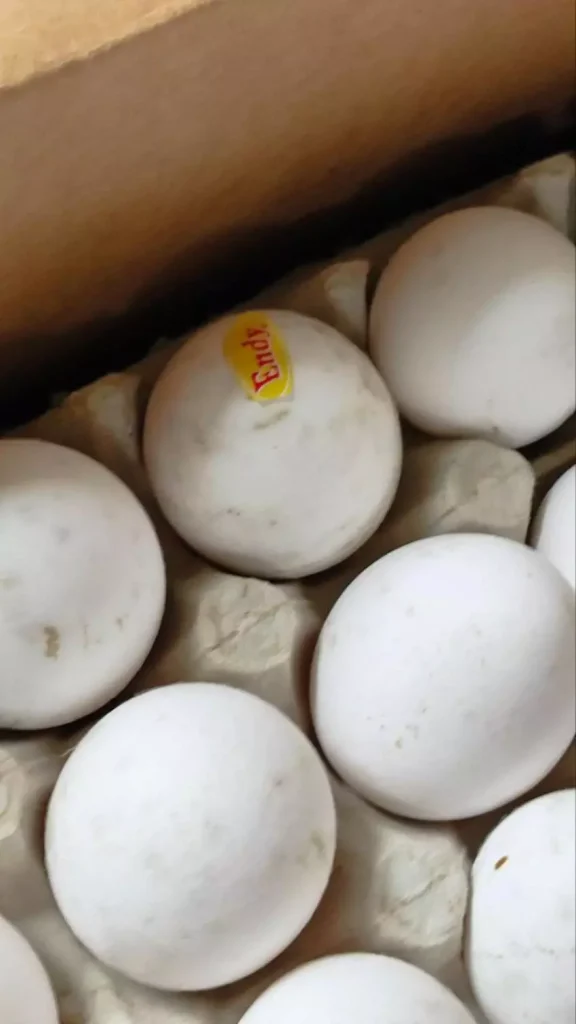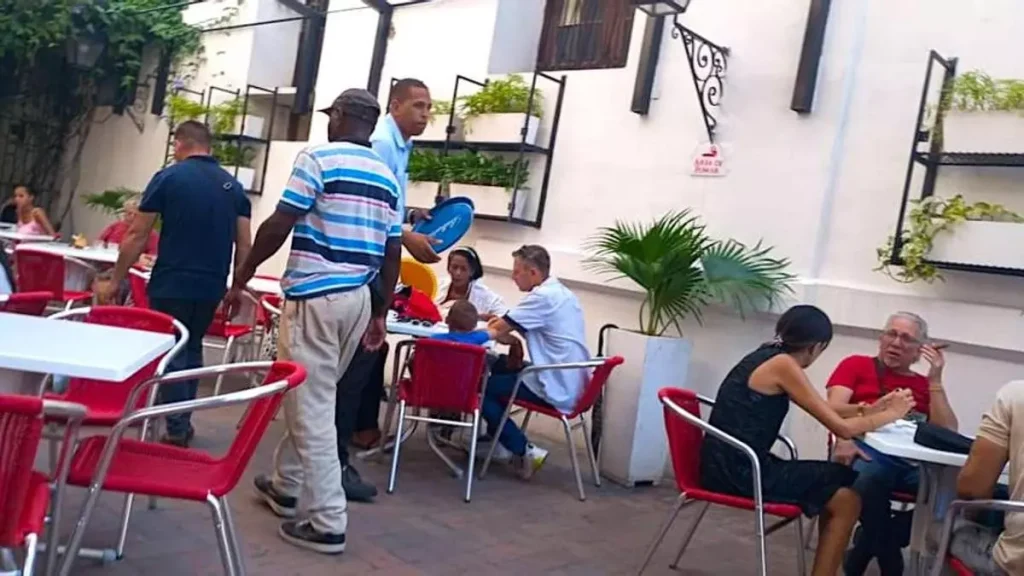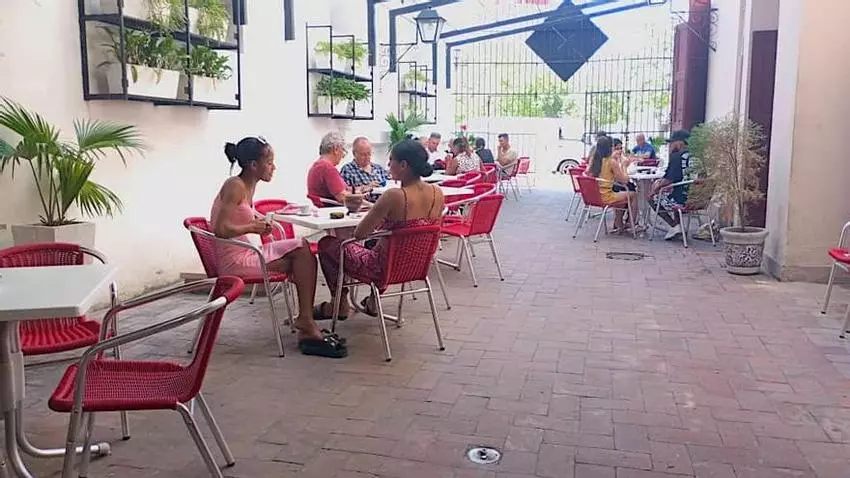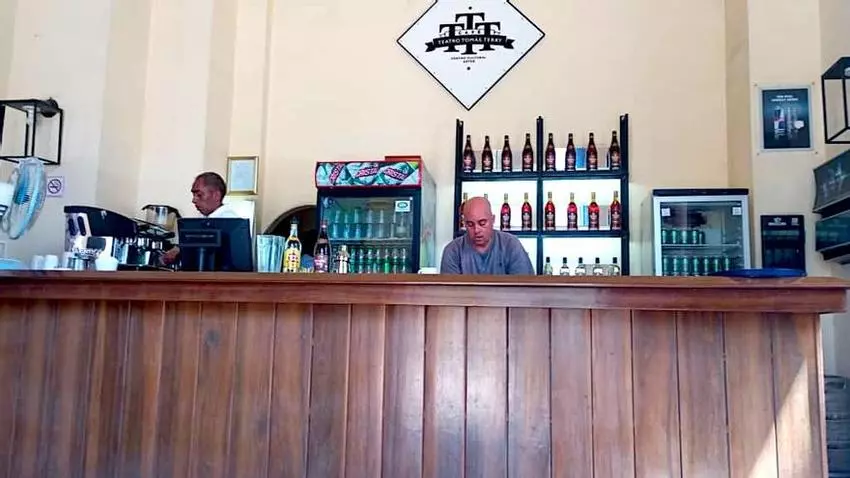Reinaldo’s cell phone rings: someone is stuck in the elevator during the power cut this Thursday

![]() 14ymedio, Yoani Sánchez, Havana, 22 August 2024 — There is a sudden silence. It is daytime, so the signs of the blackout do not appear through a lack of lighting but through the absence of sound. A deep emptiness that we all know what it means: the power has gone out. Reinaldo’s cell phone rings. Someone is stuck in the elevator with the power cut this Thursday, when the energy deficit in Cuba reaches 39% of consumption. I see him walking down the hall, with his 77 years on his back, and his enthusiasm of a 20-year-old.
14ymedio, Yoani Sánchez, Havana, 22 August 2024 — There is a sudden silence. It is daytime, so the signs of the blackout do not appear through a lack of lighting but through the absence of sound. A deep emptiness that we all know what it means: the power has gone out. Reinaldo’s cell phone rings. Someone is stuck in the elevator with the power cut this Thursday, when the energy deficit in Cuba reaches 39% of consumption. I see him walking down the hall, with his 77 years on his back, and his enthusiasm of a 20-year-old.
On the Facebook account of the Cuban Electric Union, messages are posted in a cascade. People complain that they cannot sleep because of the heat and the mosquitoes, they tell of towns plunged into darkness and faces with large dark circles under their eyes who can barely perform at work. Along with these complaints, another is repeated: Havana is privileged and does not suffer from the same power cuts as the rest of the country. Regional hatred is stoked and divisions are emerging, even though the person responsible for our disaster is the same one.
It suggests that the residents of the Cuban capital are enjoying the darkness of others, while we enjoy our own illumination. Nothing could be further from the truth. Weeks with scarce water supplies and mountains of garbage with their constant flow of flies and rats have made life in this city an ordeal. The tall buildings, converted into prisons for the elderly, because they cannot bring supplies up or down, add to the deterioration of the entire city infrastructure. What we are experiencing is not a privilege, it is a trap. continue reading
Railing against the people of Havana for the supposed regional “privileges” that we enjoy only benefits those who have plunged us into this situation.
Railing against the people of Havana for the supposed regional “privileges” that we enjoy only benefits those who have plunged us into this situation. Those who, incapable of managing a country, distribute cuts at their convenience in order to also stir up internal conflict, make us lose our bearings over responsibilities and confront us in a fratricidal struggle without end. No, it is not about here or there, about El Vedado or Piedrecitas, it is about “them.” Setting us up to fight each other is a strategy that has been effective in the past. They threw us into a fight by region, by political colors and by economic levels to prevent us from facing up to them from a civil perspective.
They confront us so that we do not confront them.
Lunch is served, but it is getting cold. It is better that way. It is hard to put hot food into your mouth in the heat. Rei comes back and washes his hands, covered in the thick grease that comes from equipment with bearings. The whole apartment is filled with that rough, industrial smell. I see that he has a bleeding wound on his leg, small but deep. It is the bruises of those who try to rescue those who get stuck in a metal box when the power goes out. They are a brotherhood in retreat.
Some are old, others are sick, and most of those who once helped rescue those “stuck” in the elevator have died. Rei is one of the few vestiges left of that mixture of altruism and technical knowledge. The gusano — the ‘worm’ — on the 14th floor, the independent journalist about whom so many have made reports to the political police or have distanced themselves from, is the only salvation when they are stuck between those four metal walls, with no supply of fresh air. There is no ideology there: “Get Macho,” even the reddest ones whine . And there he goes to save them. A big heart is like that, and I hope that the future Cuba is full of those wide and generous auricles.
Then he comes back with his hands covered in grease and his wounds. “It’s nothing,” he says, because heroes don’t strut. But I see that the cut on his leg is a deep, dark color and he puts his foot up on a chair so that it doesn’t drain any more. What will happen when the “counterrevolutionary” from the 14th floor can no longer get everyone out of the elevator? I ask him to provoke him. Are they going to tear each other apart or will they work together to get the shaft moving again, raise the cabin, lower the counterweight, open the doors and get the prisoners out?
____________
COLLABORATE WITH OUR WORK: The 14ymedio team is committed to practicing serious journalism that reflects Cuba’s reality in all its depth. Thank you for joining us on this long journey. We invite you to continue supporting us by becoming a member of 14ymedio now. Together we can continue transforming journalism in Cuba.









